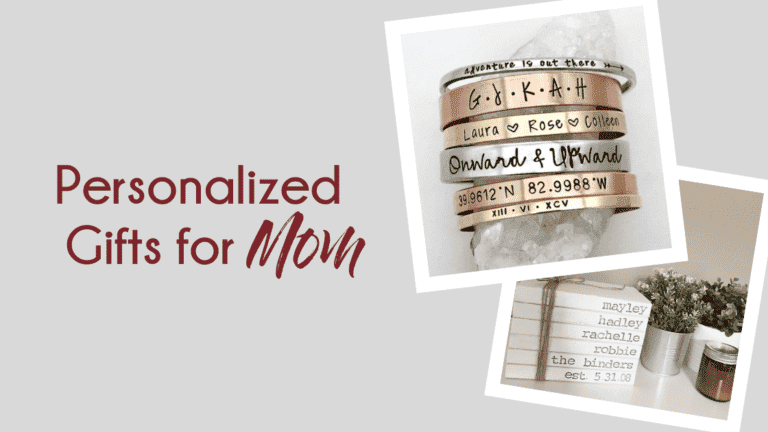How to Stop the Comparison Game for Good

Comparison is the thief of joy. I’m least satisfied with my life when I’m comparing what I see or perceive about others with what I have, do and am. We take a look at the top culprits for making our glass seem half empty and consider tangible ways to be more content with what we already have – stopping the comparison game for good.
Updated 1/16/2020
Comparison is the thief of joy. -Teddy Roosevelt
There are too many days where I feel good about my outfit or my house or my kids…until I see her clothes, or her house or her kids.
You know who she is. Her living room came straight out of a Pottery Barn ad (swoon!). Her kids are color-coordinated and smiling in the picture from their fall family photo shoot. Curse you Instagram. And you, Pinterest.
Why is it so hard just to stay in our my lane? Why can’t I give myself the same advice I bark at my kids, “Why don’t you just worry about yourself”?
Apparently the urge to compare – and feel worse for what we find – is part of the human condition. Roosevelt preached it before we even had social media. Layer on an ever-churning Facebook feed, and now when comparison swings by to steal our joy, it also throws in the bag our self-confidence, satisfaction, rest and even our time.
I’m least satisfied with my life when I’m looking around, comparing my life with what I see or perceive about others (which is probably not accurate 93.5% of the time anyway).
Me: “Crazy yard man across the street is at it again. Was a blade out of place in his perfect, green carpet-lawn?”
Real life: Crazy yard man is a young married guy with no kids, time to burn and an actual interest in yard maintenance.
Me: “They say a tidy house is the sign of a life misspent, so I clearly have my priorities way straighter than my neighbor. How is it possible her house looks amazing even when I drop in unannounced? But I don’t really care since my priorities are so darn straight.”
Real life: Said friend later admits she feels guilty that she spends time cleaning that she should probably spend with her kids because she really likes a clean house.
Me: “I was off work today and stopped in at Target to return that shirt that’s been sitting in my passenger seat for 29 days. I saw SO MANY people there. Don’t these people have jobs? How are they at Target browsing casually around at 1 p.m. on a Wednesday?!”
Real life: Hypocrite alert. I myself was in Target at 1 p.m. on a Wednesday due to random circumstances. My neighbor is a nurse and will work four nights straight, come home and sleep a few hours, and run to Target at 1 p.m. A new mom afraid to venture anywhere else with a newborn that might poop or beg to nurse at any moment goes to Target at 1 p.m. on a Wednesday.
And then there’s my inner monologue when I hear from another school mom about their upcoming vacation (didn’t you JUST take your kids on a Disney cruise?!) or when I talk to friends who stayed in the corporate world when I made the move to education (I don’t even want to THINK about what your paycheck looks like now compared to mine – don’t you know I’m changing lives!).
This mental (and actual) commentary always leaves me feeling much more satisfied with my own family, job and circumstances – said NO ONE EVER. I know this, and yet I insist on torturing myself.
I hear myself, and I don’t like that version of me. Time to tame the judgment and jealousy beasts.
I really do consider myself a “glass half full” kind of a gal, but truth is that my glass is fuller in certain areas of my life than others and even on certain days.
So let’s take a look at the top things that can make that glass seem REALLY empty and some tangible ways to to keep the focus on our haves rather than our have-nots.
Culprit #1: Social Media
Some of my friends have said “Bye Felicia!” to social media, either permanently or for a time, because they they were comparing themselves and their lives to others in a way that wasn’t healthy.
Way back in 2011, the American Academy of Pediatrics coined the term “Facebook depression” to describe the impact social media can have if you’re not careful. They have since clarified that social media can also be a source of information and support. But Facebook, Pinterest and Instagram still give us new ways to level-up a dangerous comparison game that has been going on since the dawn of humanity.
I use Pinterest to dream about my perfect house. Here’s a pin straight from my kitchen board. Isn’t it dreamy? I swear I would invite friends for impromptu dinner parties and students for chili cook-offs if I just had this kitchen.
I honestly shy away from hosting because I’ve seen some of my friends’ beautiful homes. They aren’t judging my house – this is a me problem. My own comparison holds me back. I’m a fun host. Hospitality and humor are some of my biggest strengths, and I’m holding them and myself back when comparison wins.
Psychologists in the 1950s popularized the social-comparison theory to describe people’s deeply-rooted tendency to track their progress and assess self-worth by comparing themselves to other people. Doing this all the time, over time, leads to depression and lower self-esteem. Especially when we compare ourselves with people we feel are out-doing us in different ways,
I see a friend’s amazing family vacation pics on Facebook and suddenly start questioning why my family’s road trip was less picture-perfect and more “Get your fast food wrappers off the van floor!”
Perception often doesn’t match reality. We get glimpses of that all the time, yet forget by our next spin through Facebook. (Remember my friend with the amazing vaca pics? She later dished that her vacation was “a disaster” with a blow-out fight with the in-laws.)
This was the state of Mary’s van after about 1,000 miles of driving this summer. Please don’t report my misconduct of borrowed materials to the library.
Any guesses how long it took for Kristie to get ONE good family photo?
Culprit #2: A Focus on What Others Think
I have hideous white tile throughout my entryway and kitchen that shows every piece of dirt, dog hair, dried mac ‘n cheese and mandarin orange. The grungy brown, used-to-be-white grout almost looks intentional at this point. I can’t count the number of times I’ve crawled around on the floor with a paper towel and a bottle of spray cleaner spot cleaning because a friend is stopping by and I’m horrified by the state of my floor.
But Kristie’s grandma has me beat. Her grandma bleached the sidewalks in front of her house. Let me repeat that, because it might make you feel better about the things you do to save face in front of others. SHE BLEACHED THE SIDEWALKS. I imagine her like Raymond’s mom from the sitcom Everybody Loves Raymond with her plastic cover on the couch. It crunched uncomfortably when people sat on it, but darn it, the couch stayed clean.
Kristie’s grandma and I might be slightly neurotic, but stop for a minute and think about things that you DON’T DO because, in a small or a major way, you worry about what people might think. Let me give you some ideas to spur the brainstorm:
- Not posting pictures of yourself (in your house or social media, how many fewer pictures do you see of yourself compared to every other family member?)
- Not having people over as often as you’d like because 1) You’re not a great cook 2) You’d have to clean the house 3) You feel responsible for making it an epic event as the host
- Not joining an adult rec team or coaching a team for your kids (You haven’t played in years. You didn’t play high school soccer, so maybe you don’t have what it takes to coach these 6-year-old girls.)
What did you add to this list?
What are we missing out on because we feel like things need to be a certain way to make an impression on others?
We often want to control our kids, our students, our house and our skills in any given area because it’s so easy to feel like it’s all a reflection of some image we’re trying to portray. An image we would prefer be from our best side, on a day we’ve actually showered – oh, and with an Instagram filter because these wrinkles aren’t gonna fill themselves.
And the grand irony is that almost every time, real people prefer to interact with, work with and be friends with other REAL PEOPLE. I love it when I visit a friend and see dirty dishes in the sink. Or when a coworker tells me about a royal screw-up in the classroom.
I even have to admit the value of walking through those mortifying times when my kids do something that makes it look like they are parented solely by Netflix. That’s when connections happen, and lessons are learned, and relationships deepen beyond the surface.
Shasta Nelson researches and writes about how many women struggle to maintain and grow strong friendships. A solid friendship requires consistency, positivity and vulnerability. Being real is a prerequisite of being friends.
Even in mainstream media, you can see the hunger for things that are authentic as brands make growing profits by being more real. Dove’s been riding the wave for years with its Real Beauty ads, and in 2018 Macy’s launched a “Remarkable You” advertising campaign focused on six real women from different jobs from teacher to civil engineer to coach.
The quest to be flawless is exhausting, and the prize is pretty empty.
Culprit #3: Healthy Competition Gone Awry
Competition – with yourself and with others – can be good. It motivates me to make time in my schedule to run and to look for tools and ideas to improve my teaching year after year. It makes games from soccer to Ticket to Ride fun.
But left unchecked, competition can do some serious damage. It can put us on one side and other people on an opposing side, turning friends, family and even strangers into the team to beat.
Take this Buzzfeed quiz to see What % Competitive Are You? I got a 62%. Bet you can’t beat me.
So what can I do?
If these are the top things that create unhealthy comparison in our lives, how can we flip the script to build and protect a healthier mindset.
Put Your Perspective In Check
Let’s just start here. If you live in America or another first world country, you have a lot. I’m not trying to minimize difficult circumstances – whether they be financial, relational, health-based or anything else. Rough times are rough times. But a lot of the damage comparison does in our lives is around the small stuff. And sometimes we just need a reality check.
Lyndsey Dennis, author of the blog Vapor & Mist and Buried Dreams, doesn’t know me, but her story impacted my life. In a few short years, her mom journey saw her love two daughters whose lives were much too short, and know the joy of adoption and giving birth to healthy baby Briella.
She walked through such difficult circumstances – things I can’t and don’t want to imagine. But her ability to show hope and faith in the face of the deepest sorrow inspired me and gave me much needed perspective. I found gratitude and empathy, rather than jealousy or discontent.
A similar shift happened when Kristie and I served summer lunches with our co-worker’s nonprofit The LunchBox Ohio. Our kids saw a part of our city they hadn’t seen before. They heard stories about kids whose parents send them out the front door in the morning with nothing to eat and tell them not to come home until dark. Kristie’s kids went home talking about gathering donated sports equipment to donate to the kids they had met, and I didn’t hear the usual complaints about what we were having for dinner for at least a week.
Both Kristie’s family and mine did the “Giving Hope to Sick Kids” SALT effect box with our own families, and man, did it bring some things in focus. It was difficult and a little scary to talk to our kids – ages 5 to 12 – about the many kids who battle cancer and other serious illnesses. But it’s real, and it made them thankful for their health. It also empowered them to see there are tangible ways they can use what they have to help others and to do that.
The box includes a kit from Beads of Courage that connects you to a real child in a way that truly does offer joy and hope.
Practice Gratitude
This is something we talk about a lot around here because it makes a big difference in our lives and the lives of our kids. We’ve put together seasonal photo scavenger hunts for a really fun and easy way to practice gratitude on your own or with your family.
Keep Your Eyes on YOUR Road
There is, and will always be, someone smarter, better looking, richer, in better circumstances and [fill in the blank] than you. But there’s always someone in line behind you as well. What actually matters is that there is no other person exactly LIKE you, with the unique combination of gifts you bring the table. Get to know your strengths because that’s where you will excel. We really like the book and online assessment StrengthsFinder. It’s $16 and the Amazon description sums it up:
“Do you have the opportunity to do what you do best every day? Chances are, you don’t. All too often, our natural talents go untapped. From the cradle to the cubicle, we devote more time to fixing our shortcomings than to developing our strengths.”
Stop shooting for perfect, and instead find your strengths. Look for ways to live and serve in your sweet spot. Be real and be you. We’ll leave you with a few ideas on how to do that.
It makes us laugh that this post – of us prepping food in hair nets in a 90-degree kitchen – got more comments from our friends on social media than almost any other post we have.
- Take a break from social media to cut out the urge to compare (or delete the app from your phone so you’re limited to when you’re on a computer)
- Post pictures of your real self in your real life with your real family, even when it feels a little to embarassingly real
- Invite friends for dinner and order pizza instead of cooking. Or bringing home pulled pork from some local joint and asking the guests to bring a side
- Look at the people with whom you spend the most time (motivational speaker Jim Rohn says you’re the average of the five people you spend the most time with)
- Keep a “gratitude list” on your phone, in your journal or planner, or on your fridge as a visual reminder













